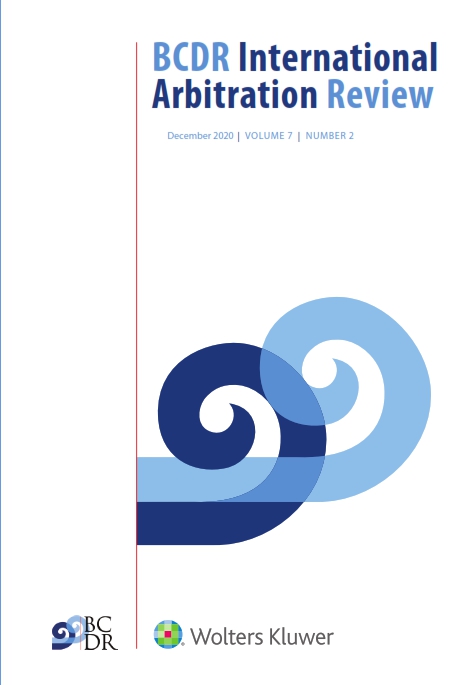Home > All journals > BCDR International Arbitration Review > 10(1) >

Priyanka Shetty, Aditya Singh Chauhan
BCDR International Arbitration Review
Volume 10, Issue 1 (2023) pp. 23 – 58
Abstract
We are navigating a
post-pandemic era with increased use of digital technologies and an
unprecedented shift from traditional ways of conducting arbitration
proceedings. This has resulted in an unprecedented “dataquake” and a
significantly increased role of arbitral institutions in terms of, inter alia,
technological innovation. The possibilities of the use of artificial
intelligence (AI) in arbitration are thus increasing by the day, but still
remain ascertainable. Many limitations still exist, including issues such as
the concerns of confidentiality and data privacy, the absence of a legal
framework for guidance, and difficulties in the generalization of AI – to name
a few. To be able to accurately gauge the potential influence of AI on
arbitration, we must understand the fundamentals of AI, including both its
theoretical and practical aspects as they apply to arbitration. This article
will provide an overview of how AI could be transforming arbitration.
Extract
